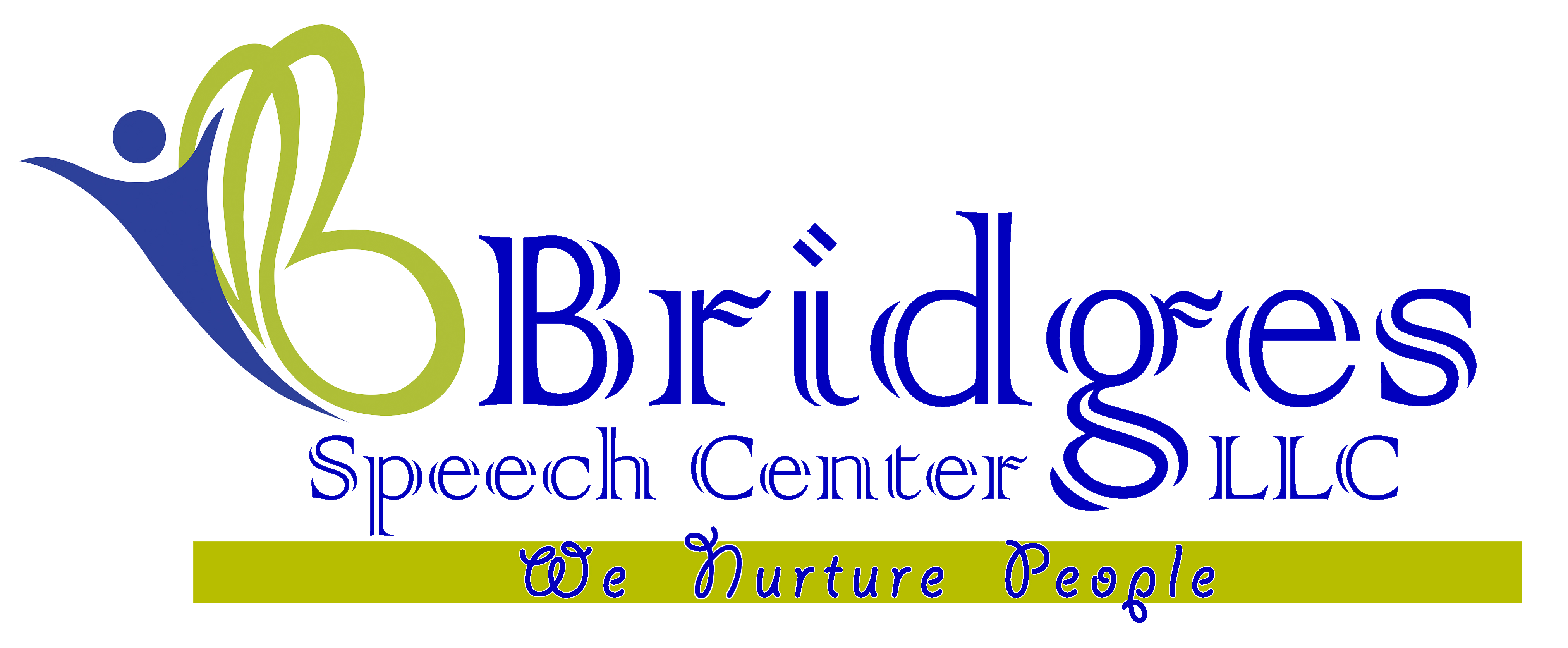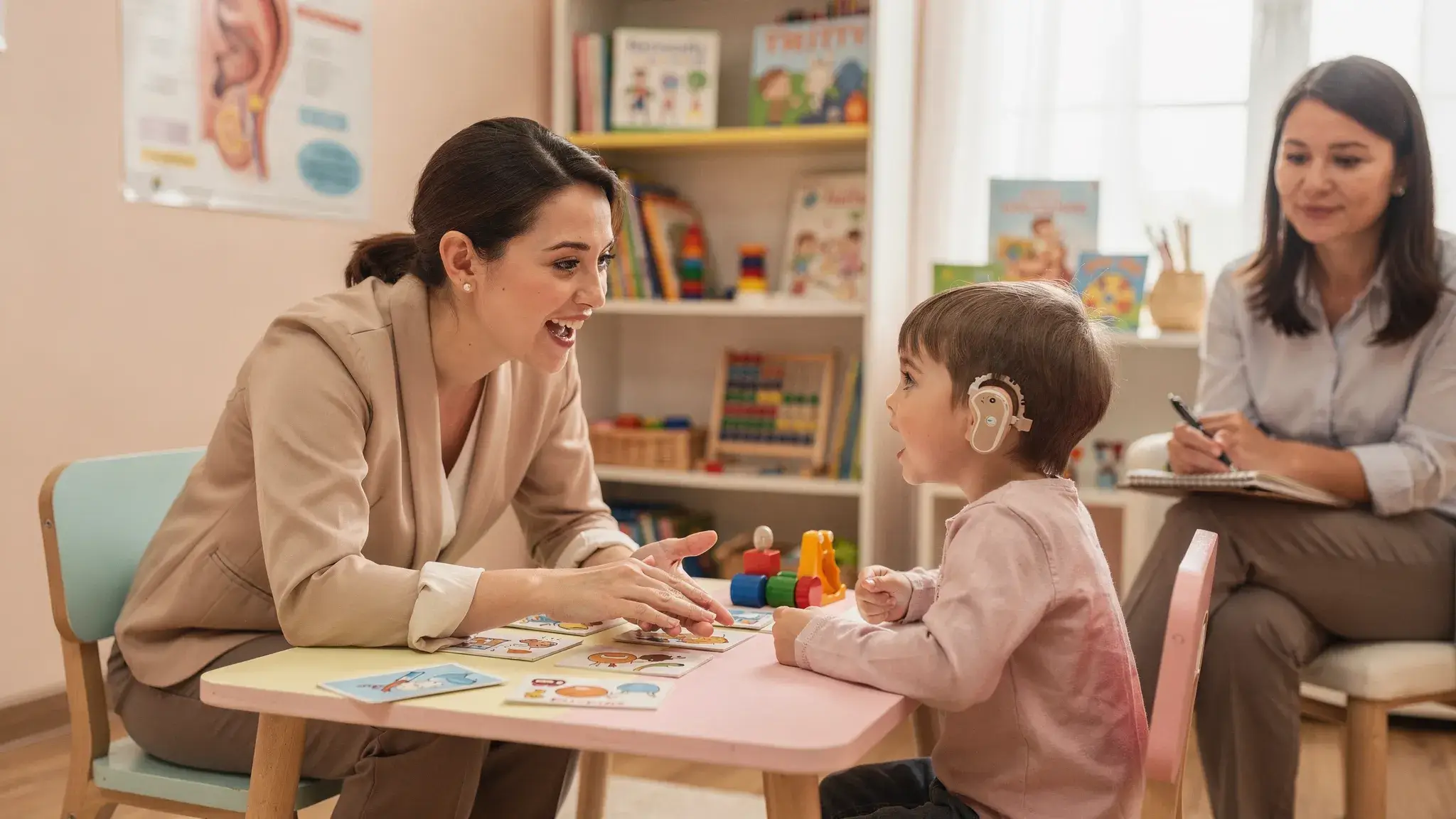FAQ
Related Questions
What are early signs of Autism?
Autism Spectrum Disorders are a group of conditions in which a person has difficulty in perceiving and socialising with others. An autistic child may not express himself like a normally developing child. He is preoccupied with certain objects/topics. He may like doing some things again and again. He may not like any changes in his play pattern..
Here, are some red flags to understand when to seek professional help:
- No consistent response to surrounding sounds till 6 months of age.
- No eye contact by 6 months of age.
- No social smile or meaningful expressions of joy by 6 months of age.
- No reciprocal social expressions with speaker by the age of 9 months.
- No babbling by 12 months.
- Difficulty in expressing needs by pointing and social expression like waving by 12 months.
- No consistent response to name call by 12 months.
- No meaningful first word by 16 months.
- Difficulty in following commands by 18 months.
- No two-word meaningful phrases by 24 months.
- No turn-taking in conversation by 30 months.
- Any loss of speech or babbling or social skills (like eye contact) at any age.
Early identification and intervention helps significantly in reducing early struggles.
How to identify if your loved one has dysphagia(swallowing difficulty)?
How to identify if your loved one has dysphagia?
‘Dysphagia’ or difficulty in swallowing is a common problem that can have life threatening complications if not identified in time. It can lead to a variety of problems like aspiration (food or liquidsentering the lungs), choking, dehydration, malnutrition or weight loss.
See an ENT Specialist if you experience any of the following symptoms for a thorough check up. Keep in mind that you may be referred to a Gastro-enterologist or Speech language pathologist.
- Choking frequently on food/liquid/medication/saliva.
- Feeling of discomfort or pain when swallowing.
- Feeling of a lump in the throat.
- Difficulty in chewing food or keeping food in the mouth while chewing.
- Taking too much time in finishing a meal.
- Gurgly voice quality after eating or drinking something.
- Coughing during eating or after swallowing.
- Multiple swallows needed for a single bolus.
- Getting tired after finishing a meal.
- Shortness of breath during or after having food.
- Regurgitation of food/liquid
What to do, my child is stammering?
Stuttering or stammering is a type of fluency disorder which causes difficulty in maintaining the flow of speech. It may be due to numerous reasons like anxiety, improper breathing etc.
Stuttering is common in young children between 2 to 5 yrs of age as a normal part of learning to speak (normal nonfluency). It is usually due to a limited vocabulary. Kids do outgrow normal nonfluency with age.
However, a few develop Chronic Stammering, that continues into adulthood. Stammering results in low self-esteem and poor social relations.
Children and Adults who stutter do benefit from Speech therapy.
How to help my child?
- Early identification is very important as it impacts the personality and emotional well being of the child.
- Do not fill words for your child. Let them finish sentences by their own.
- Have patience and listen to the content of speech and how it is spoken.
- Do not mock.
- Talk slowly, listen patiently.
- Do not repeat questions on topics which child shows difficulty in expressing.
- Meditation under supervision of a yoga expert.
- School support.
- Calming down child when angry, anxious or stressed.
- Avoid making them conscious.
- Do not display your child’s talent in front of strangers.
- Do seek the help of a Speech therapist if the problem persists.
Can Autism be cured?
AUTISM: Myths and Facts
All professionals dealing with Autism and other PDD celebrate World Autism Awareness day which was on 2nd of April, with a lot of zeal. We rejoice this very special class of individuals who see and feel the world in a very different way.
Today, let’s bust some myths around this diagnosis:
- Autism is caused by bad parenting.
Truth: Autism has nothing to do with the style of parenting. - Autism is caused by vaccines.
Truth: Various studies have proven that Autism is not caused by vaccines. - Individuals with Autism lack emotions.
Truth: Individuals with Autism express emotions in a different way. - Individuals with Autism don’t want to make friends.
Truth: Most individuals wish to socialize but they do not know how to do so. - All individuals with Autism are mentally disabled.
Truth: Each individual with Autism is unique and can have varying intellectual abilities. - Individuals with Autism can’t learn.
Truth: Learning might be difficult or slow, but they can definitely learn. - Autism can be cured.
Truth: Till date, there is no cure for Autism.
Early diagnosis and intensive multidisciplinary (Behavioral, Speech and language and Occupational) therapy can reduce the severity of the symptoms and empower them significantly.
My child grinds teeth(Bruxism)?How to help?
Biting and grinding of teeth in children.
Why? Some children enjoy the sensation of oral pressure in their mouth. It gives them a soothing effect.
How to help?
- Let the child eat chewy/crunchy food like apple, dried fruit etc under supervision of an adult.
- Allow child to drink thick liquids through a straw Eg. yoghurts, pudding, milk shakes etc.
- Encourage playing with toys like whistles, bubble blowers, balloons,etc.
- Using vibrating toothbrushes for brushing.
My child is not talking is it normal?
- No consistent response to surrounding sounds till 6 months of age.
- No eye contact by 6 months of age.
- No social smile or meaningful expressions of joy by 6 months of age.
- No reciprocal social expressions with speaker by the age of 9 months.
- No babbling by 12 months.
- Difficulty in expressing needs by pointing and social expression like waving bye by 12 months.
- No consistent response to name call by 12 months.
- No meaningful first word by 16 months.
- Difficulty in following commands by 18 months.
- No two-word meaningful phrases by 24 months.
- No turn-taking in conversation by 30 months.
- Any loss of speech or babbling or social skills (like eye contact) at any age.
Will my child get admission in school if he has Autism or hyperactivity?
Dubai, 23 November, 2017: A new policy framework aimed at promoting greater inclusion in Dubai’s private education sector was announced on Thursday by Dubai’s Knowledge and Human Development Authority (KHDA). Providing information on procedures and standards necessary improving inclusive education in Dubai, the ‘Inclusive Education Policy Framework was announced at an event hosted in Zayed University.
His Highness Sheikh Mansour Bin Mohammed Bin Rashid Al Maktoum, Chairman of the Higher Committee on the Rights of People of Determination, said: “The UAE Constitution has established education as an acquired right for every citizen. The launch of the inclusive education policy comes in line with the national policy directives of His Highness Sheikh Mohammed bin Rashid Al Maktoum, Vice-President and Prime Minister of the UAE and Ruler of Dubai, to empower people of determination with the aim of building an inclusive society free from all obstacles.”
The policy framework was developed under the leadership of The Executive Council of Dubai through its ‘My community… a city for every one’ initiative as part of the collaborative efforts by the Higher Committee on the Rights of People of Determination. Through its leadership on the Inclusive Education Taskforce, KHDA has collaborated with other government partners to develop Dubai’s Inclusive Education policy.
Impact of Parkinson's in Adult.....
Speech, Language and Swallowing deficits in Parkinson’s Disease
Parkinson’s disease (PD) is a slowly progressing neurodegenerative disorder resulting from dopaminergic deficit in the Substantia Nigra. This results in symptoms such as bradykinesia (slow movement), resting tremor (pill rolling tremor in hands), rigidity and postural instability. Symptoms usually initiate on one side of the body and the progression varies from person to person.
Recent advancements propose a Prodromal Phase of PD which may be present for many years and the individual may present with non-motor (sleep disorder, mood changes, anxiety and loss of smell) or slight motor symptoms which do not fall under the classic clinical diagnostic criteria.
Speech/ Language and Swallowing problems in PD
Majority of the people with PD may show symptoms of Speech and Language deficits. Most common problems noticed are:
- Reduced pitch range
- Reduced volume
- Dysarthria (slurred speech)
- Poor speech intelligibility
- Difficulty in expressing emotions due to ‘masked face’
- Stammering/cluttering in few cases
- Word finding difficulty
- Poor understanding of language
- Cognitive deficits
- Memory impairment
The individuals diagnosed with PD may also exhibit swallowing problems (Dysphagia). Symptoms may include:
- Drooling
- Choking frequently on food/liquid/medication/saliva
- Feeling of discomfort or pain when swallowing
- Feeling of lump in the throat
- Difficulty in chewing food or keeping food in the mouth when chewing
- Taking too much time in finishing a meal
- ‘Gurgly’ voice quality after eating or drinking something
- Coughing during eating or after swallowing
- Multiple swallows needed for a single bolus
- Getting tired after finishing a meal
- Shortness of breath during or after having food
- Regurgitation of food/liquid
- Aspiration of food/ liquid (food/liquid going down towards the lungs)
- Dehydration/ Malnutrition/ Weight loss
Speech therapy treatment in PD
Various treatment options are available which can provide better quality of life to persons with PD. Medical intervention should be coupled with Speech Therapy for better results. A skilled Speech Language Pathologist (SLP) will be able to provide the best options and training to the individual based on the most debilitating symptoms presented.
Some of them are as follows:
- Training for the use of AAC and DAF devices to assist with poor speech intelligibility, pitch changes and rate of speech
- Lee Silverman Voice Training (LSVT) program for volume-based intervention and can be provided by a SLP licensed in LSVT
- Language and cognitive deficits can be addressed by Speech therapy by teaching communication strategies to the patient and carrying out counselling sessions for the communicative partner/s
- Advise and training for consumption of appropriate food and liquid consistencies based on National Dysphagia Diet (NDD) after Modified Barium Swallow Study (MBSS)
- Swallowing based interventions in order to teach compensatory strategies and therapeutic exercises to facilitate safe swallowing, reduction in drooling and training for the use of adaptive feeding utensils
An efficacious partnership among families, Neurologists and therapists can help an individual with Parkinson’s Disease to live better.
What is sensory integration therapy ?Who is occupational therapist?
Sensory integration therapy focuses on helping kids with sensory processing issues which arise due to Sensory Processing disorder. The fundamental behind SI therapy is by exposing kids to sensory stimulation in a therapeutic, structural, repetitive way. This gradually enables the brain to adjust to sudden change in stimulus.
Sensory integration (SI) therapy should be provided by a specially trained Occupational therapist (OT). Occupational therapist is an Allied health service provided by certified Occupational therapists. OT often works with people with disabilities, injuries and impairments.
The sensory systems on which OTs evaluate are:
- Hearing
- Vision
- Taste
- Touch
- smell
- Balance
- Proprioception
- Interoception
After investigation, OT exposes a child to Sensory stimulation through different activities which helps child’s nervous system to respond in a more organized way to sensations and movements.
How to help children of determination during home quarantine COVID-19?
Adjusting to COVID-19 for Children of determination
Due to COVID-19 lockdown, every child’s daily routine has changes drastically. They are not able to meet their friends, get their daily high-fives from teachers,get regular training in therapy or playtime with their friends. These limitations at home and lack of engagement can have an adverse effect on child’s behavior.
Some do and don’ts for parents which will reduce these difficulties.
Do’s
- Start with those activities which a child shows most interest in, such as art and then gradually move to other tasks.
- Create Visual schedules- They will help kids to know what to expect.
- Keep them hydrated and maintain proper diet which enhances their immunity.
- Provide them sensory breaks (away from all sensory stimulations).
- Increase duration of random play schedules.
- Keep the child’s screen time to minimum.
- Involve kids in household activities. As it helps to satisfy their sensory needs. Ex. to carry laundry basket, arranging chairs and table pushing kart etc.
- Teach them to perform day to day activities independently.
- Sterilize the toys at regular intervals.
Don’t:
- Change their sleep pattern.
- Perform activities with maximum sensory input without proper consultation.
- Constant interruptions and instructions.
- Providing electronic gadgets such as mobile or i-pad.
****All activities should be conducted under adult’s supervision.



